Did you know that this past Saturday was National Hunting and Fishing Day in the United States?
From our rugged peaks and mountains to our shining seas, our Nation is blessed with remarkable natural treasures. These magnificent landscapes are places where families and friends can create lasting memories and enjoy the outdoors. On National Hunting and Fishing Day, our country honors the many contributions of America’s hunters and anglers, who add to our heritage and keep our wildlife populations healthy and strong.
Isn’t that special? I had no idea that this once proud nation had set aside the fourth Saturday of September to recognize the alleged environmental awareness of hunters and anglers. Apparently, it has been this way since 1972, when President Nixon signed the first proclamation of National Hunting and Fishing Day, writing, “I urge all citizens to join with outdoor sportsmen in the wise use of our natural resources and in insuring their proper management for the benefit of future generations.”
Now don’t get me wrong. True, hunting has never been my thing and I haven’t dropped a hook in the water for years. But my beef isn’t really that “outdoor sportsmen” are honored for the collateral conservation thrown off by their enlightened self-interest. No, what gets me is that the only conservationists that we so honor are the violent ones. Where are the birders?
This story is nothing new. The hook and bullet club, as the combined hunting and fishing special interests are called, have considerable influence in American policy and politics. Birders, I wrote years ago, should also have a seat at the table. Alas, we do not. In fact, this paragraph from the White House 2008 Presidential Proclamation implies exactly how much credit the birding bloc gets for national conservation efforts:
Our Nation’s sportsmen and women are among our foremost conservationists. They care deeply about our wildlife habitats, and they have contributed billions of dollars to wildlife restoration through the Pittman-Robertson Act, which is a levy on certain sporting goods. This investment has helped restore many species, including the American elk, black bear, and wild turkey. Through the Federal Waterfowl Stamp program, the conservation of habitats for migratory birds has been greatly improved. By protecting our Nation’s wildlife, we can continue to advance the values of good stewardship.
The Pittman-Robertson Act taxes handguns, rifles, shotguns, ammunition, and archery equipment, and thus, does not impact traditional birding activities! The Federal Waterfowl Stamp program, on the other hand, is one that I’ve seen a lot of birding organizations and blogs promote. Yet, and it pains me to point this out, there is no National Birding and Wildlife Watching Day in the U. S. of A. There are observances like Bird Day, National Bird Day, and International Migratory Bird Day, but these are clearly focused on the quarry as opposed to the “hunters.”
All nature lovers can appreciate the enormous contributions hunting and fishing organizations have made to habitat conservation and environmental policy. Sure, valid disagreements about how to best interact with beloved species will arise but the point may be moot without concerted cooperation of all parties involved to protect as much critical habitat as possible. However, I am not comfortable with the idea that all of the support birders and wildlife watchers contribute to the Federal Waterfowl Stamp program inadvertently lends greater power to the hook and bullet lobby.
I will not be buying Duck Stamps nor will I recommend their purchase to others. It just doesn’t make sense. While some of our respective constituents share dual citizenship, the scope and field guide set is a separate bloc from the hook and bullet club. While birders may not want their day on the national calendar, they may one day want their day in court. It’s probably not a stretch to say that “our Nation’s bird watchers are among our foremost conservationists. They care deeply about our wildlife habitats, and they have contributed billions of dollars to wildlife restoration.” But based on the kind of treatment birding organizations get, who would know?






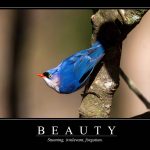
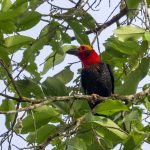
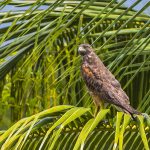
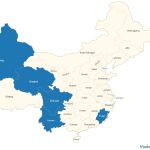
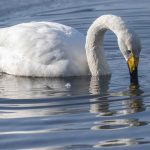
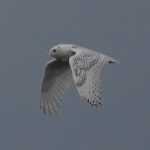
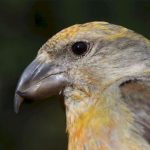
Well Mike I think you hit the nail right on the head! The hook and bullet club, as you call them, are only interested in one thing; how to insure that we have enough wildlife available to kill when the season comes along.
I don’t want to sound too high and mighty but what about simply wanting to preserve the wildlife so that future generations can actually SEE and appreciate all the wonders of nature? What about trying to save the endangered species act so that our grand kids may have the opportunity to hear the cry of a timber wolf in the wild or maybe witness the Ivory-billed Woodpecker drumming on a hollowed out tree if there are any still left on the planet.
I am a firm believer in the “take only pictures, leave only footprints” approach to conservation and I do believe that we birders need to become a more demanding force for conservation in this country and all over the world.
Thanks for posting this (what this birder considers a) truly insightful post.
The Pittman-Robertson Act was a boon to wildlife conservation and should rightly be praised. But it’s a shame that it’s only applied to hunting equipment.
Why stop at Bins and scopes? Pittman-Robertson could also apply to hiking boots, canoes, kayaks, tents, camping equipment, anything that involves the outdoors so that all of us that enjoy nature can be equally proud of our involvement in conservation issues.
A true conservationist should be described as one who does not take from nature, but only has admiration for it.
Mike,
I read this when you first posted it, and something bothered me about it. Couldn’t quite put my finger(no pun intended) on it, but
it has driven me to come back multiple times in the last few days to reread it, and to read some other articles on “Duck Stamps”. I was under the impression that “Duck Stamps” were only bought by hunters
who were chasing water fowl. I think this lack of awareness on my part was part of my displeasure over this post. In the articles I did read hikers and birders were mentioned in most if not all.
I think what bothered me most about this, is hunters and fishermen
buy licenses and gear for their endeavors which some moneys are sent
to conservation efforts. I think the national day in their honor is to
celebrate the differences this money has made over a long period of time.
Birders (including back yard birders like myself) spend a tremendous
amount of money on feed and feeders and other equipment, but as Nate
pointed out those items are not taxed to aid conservation. Plus realistically “BIRDING” is an up and coming “SPORT”, whereas hunting and fishing has been here forever and is in fact declining (at least
hunting). 40 years ago I expect the art of birding was pretty limited
but has grown very quickly.
Perhaps when the birding industry has contributed as much money to the cause for as long as the hunters and anglers have, they too shall
a day celebrating their contributions to the cause.
I question the billions and billions of dollars you mention in your last paragraph, and also your negativity to the DUCK STAMPs based on how much has been done to protect nesting grounds of migrating waterfowl. Even if the reasoning is different the end results are the same.
Many hunters and anglers use these excuses as a reason for getting out and enjoying the outdoors.
A last thought, what difference would it make if there was a national day for Birding, would you or all of the fellow birders do any thing different. (I do understand the “POWER” of the hunters alliance, but thankfully they basically have the same goals as birders–preserve wilderness areas to help wildlife).
Sorry I have rambled on, and I am not sure I have really expressed what I was trying to.
BTW A hunter I am not ,but I do fish, although not as often as I would like.
Wes
Wes, thanks for putting your neck out there and sharing your misgivings with my post. You’ve been reading us long enough to know the risk you took!
Let me jump in and say that my post was not meant as a referendum on the merits of hunting or fishing. Nor was my purpose to diminish the authentic contributions sportsmen have made to conservation over the years.
My point, and Wes, I believe this speaks to your comment, is that the contributions birders and other recreational wildlife watchers, photographers, etc have made to conservation are often rolled into and counted under the hunter and angler umbrella.
Habitat protection is a goal all parties involved share but after that, each faction usually parts ways. It isn’t enough to say that at least land is set aside, not when for example hunters and anglers get a president’s ear while birders are ignored.
I’ve read at least one source that claims that the funds raised by the Pittman-Robertson Act accrue to hunters when in fact they are generated by a ton of non-hunting gun owners. The Duck Stamp is the same way. Birders and conservationists who buy the Duck Stamp send the signal that they share the goals of hunters when in truth they have differing, sometimes even antithetical ones.
The reason no one can point to the contributions birders and wildlife watchers have made to conservation is the lack of a license, sports tax, or separate bird stamp. That’s what I’d like to see, if only so birding organizations can get a seat at the policy table. Then you’ll see that we don’t necessarily have the same goals as the hunter’s alliance!